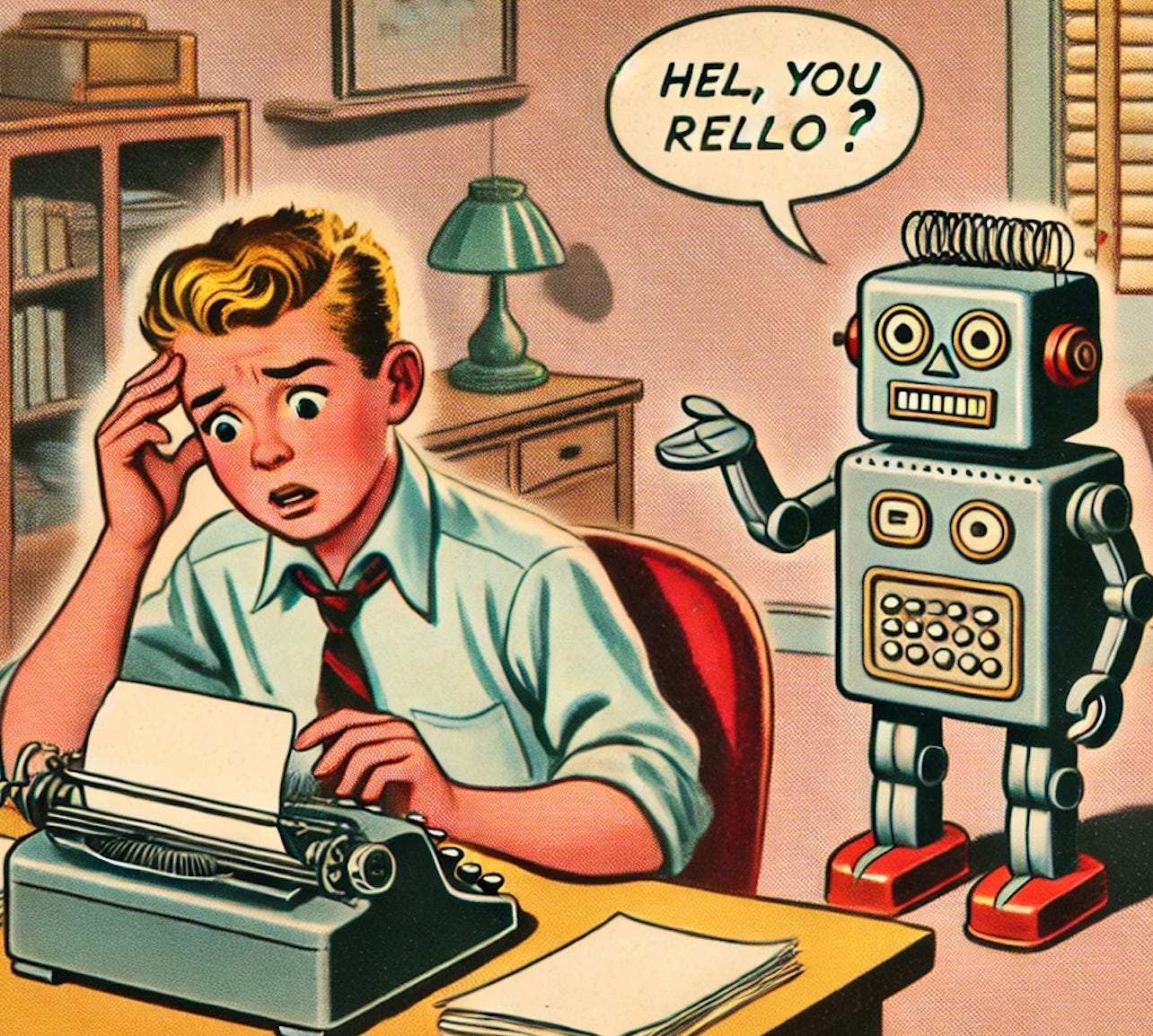I was listening to the Upgrade podcast yesterday, where they discussed Apple’s new intelligence tools in the latest OS releases. Jason Snell made an interesting point about Apple Intelligence.
As a professional writer, he said there isn’t much in Apple’s new tools for him. But he pointed out something that hadn’t occurred to me (probably because I am a very selfish guy): while Apple’s AI, or any AI, might not be useful to writers like him or me, most people aren’t writers. For a lot of peeps, getting a coherent sentence down on a page or screen is a real struggle.
Apple seems to have designed their tools to specifically help with tasks like, “Make this sloppy, unprofessional-sounding email sound a lot better,” or, “Take this long-winded thousand-word email and give me the key points.” It’s not about writing the next great novel or epic poem—it’s about helping non-writers get their thoughts into emails or documents without sounding like they didn’t pass high school English.
While Snell was clear that Apple’s AI had nothing to offer him creatively, he seemed to think it’d be very short-sighted to assume no one else could benefit from it. I think he’s right, both specifically about this bunch of OS updates and more generally about Large Language Models.
Personally, I’ve made my peace with the inevitability of being enslaved by the robots, and I’m simply trying to work out how not to be destroyed by them. One example: I still use dictation software because it’s way faster than typing, even with the recognition errors. A good use of AI for me, then, is feeding a first draft—dictated and full of those errors—into an AI editor, then telling it, “This was dictated; it’s rough and full of artifacts. Just clean up the mistakes but keep my tone and voice.”
For my purposes, that works almost flawlessly. I’m still doing all the creative lifting, but it speeds up the creation.
But for people who aren’t writing thousands of words a day, an empty page can be intimidating, whether they’re writing by hand or just dictating. They struggle to form coherent sentences, let alone string together pages and chapters. If our robot overlords can help them with that, who am I to say they shouldn’t use it?
On the other hand, a huge proportion of the web’s written content is now worthless AI slop. Eventually, almost all of it will be.
Anyway, I’ll understand if nobody wants to answer, but I am curious if any of you are using these tools for work or whatever.





We have some rules about which AI thingamabobs we can and can't use, and I think we're currently running a Microsoft CoPilot, um, pilot to see how beneficial it might be for letter writing and whatnot. I tend to stay away from it all.
My searching provider has recently introduced an AI summary option where a patent family will be summarised in three dot points. Having to click on a button and wait a few milliseconds for each family is time wasting, and doesn't usually glean (or gleam, as someone once wrote to me) anything more useful that I can see already. If I could export that summary, that would be more useful perhaps for the end user of any report I write.
I'm just hoping to last another nine years and retire before the juggernaut catches me and runs me down.
well JB, I must respectfully disagree with a couple of points you made here, I don't think we will be enslaved by the robots, nor do I think eventually all the web content will be AI drivel (although I agree with you that plenty of it is already).
like you (and other examples in the comments), I have found a use for the LLMs to flash up some of the doco I write. I work in the Corporate IT game (my other job besides the Booze hustle) and the LLMs are quite fine for drafting most of the dross we need to write, but....it is quite clear when someone sends you an LLM generated piece of drivel and does not take the time to "clean it up" (make it read like a human wrote it), and folks are instantly dismissive of such work. the LLMs are completely devoid of original thought or imagination. If the techheads can solve that problem then yeah, we are probably in trouble. Until that time, they are just tools.
But the more relevant point that gives me hope is a line I heard from an analyst I follow who responded when asked about the LLM phenomena... he said words to the effect of
" I foresee a bull market in original human thought and content creation"
and went on to explain that people intuitively seek this out. And it's true, we love stories, and we love "authentic" stories. Our 'spidy sense" instinctively senses when something is not written by a human, it just doesn't relate.
I see this in action every day now on SubStack, I am a huge consumer of writing on substack that is authentic, and clearly written by a person. I know you are too.
Azimov explored this concept (70 YEARS AGO) in the Robot novels, where humans were repulsed by robots (as they imitate humans) and this led eventually to robots being rejected and removed from the human world. I strongly recommend reading iRobot (for a taster) and then the 4 Robot novels (caves of Steel, Naked Sun, Robots of the Dawn, Robots and Empire) as he explores these concepts in detail which is quite prescient considering computers barely existed at the time.